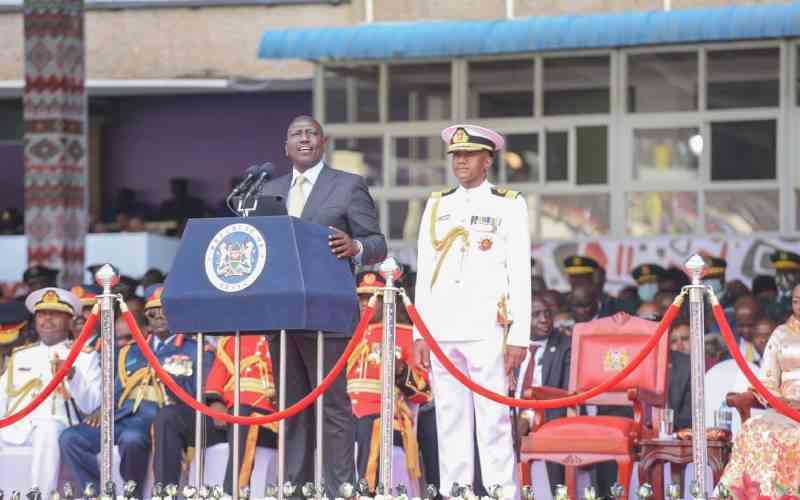
Far from sounding like another campaign pitch, the speech by the 5th President William Ruto grated from the choice of phrases, words and paragraphs that got cut off abruptly before concluding on an argument being advanced.
The personal touch was manifestly lacking in the speech unlike at the launch of his manifesto where it seemed enough thought went into writing the speech.
Also remarkable was that the author of the speech did not ensure that he gets into the text words that his subject would enunciate well (with proper intonation and pause) to enhance message delivery. A lot of the words got lost as the new President tried to pronounce them.
Facts First
This story continues on The Standard INSiDER. Subscribe now for unfiltered journalism that holds power to account.
Already have an account? Login
 The Standard Group Plc is a multi-media organization with investments in media
platforms spanning newspaper print
operations, television, radio broadcasting, digital and online services. The
Standard Group is recognized as a
leading multi-media house in Kenya with a key influence in matters of national
and international interest.
The Standard Group Plc is a multi-media organization with investments in media
platforms spanning newspaper print
operations, television, radio broadcasting, digital and online services. The
Standard Group is recognized as a
leading multi-media house in Kenya with a key influence in matters of national
and international interest.

